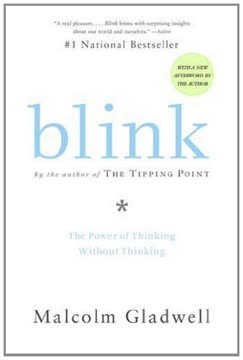Key Takeaways
1. We default to truth when interacting with strangers
Default to truth becomes an issue when we are forced to choose between two alternatives, one of which is likely and the other of which is impossible to imagine.
Truth bias is adaptive. Humans have evolved to default to believing others are telling the truth. This tendency allows for efficient social interactions and cooperation. However, it can lead us astray when dealing with strangers who may be deceptive.
Overcoming default to truth is difficult. Even highly trained professionals, like CIA officers, struggle to detect deception in strangers. It often takes overwhelming evidence to trigger disbelief. This explains why frauds like Bernie Madoff can operate for years despite red flags.
Costs vs. benefits. While defaulting to truth makes us vulnerable to occasional deception, the overall benefits to society outweigh the costs. A world of constant suspicion would be paralyzed by mistrust and unable to function.
2. Transparency is an illusion in understanding others
The assumption of transparency we rely on in those encounters is so flawed.
Facial expressions are not universal. Contrary to popular belief, emotions are not displayed the same way across cultures. Studies with isolated tribes show they interpret facial expressions very differently than Westerners do.
Behavior doesn't reliably indicate internal states. Even within a culture, people's outward behavior often doesn't match their true feelings or intentions. This mismatch between inner experience and outer expression makes it challenging to accurately "read" strangers.
Judges perform worse than algorithms. Despite having access to defendants' demeanor and behavior, judges make less accurate predictions about recidivism than simple statistical models. This suggests the extra information from face-to-face encounters can actually impair judgment rather than improve it.
3. Coupling: behavior is tied to specific contexts
When crime is concentrated on a few percent of the city streets, why the hell are you wasting resources everywhere?
Crime is highly localized. Studies consistently show that a small percentage of locations account for the majority of criminal activity in cities. This phenomenon, known as the Law of Crime Concentration, holds true across diverse urban areas worldwide.
Suicide methods matter. When Britain transitioned from coal gas to natural gas in homes, removing an easy method of suicide, the overall suicide rate dropped dramatically. This shows that suicidal behavior is often coupled to specific means and contexts rather than being an inevitable outcome of depression.
Policy implications. Understanding coupling can lead to more effective interventions:
- Focused policing on crime hot spots
- Restricting access to lethal means for suicide prevention
- Redesigning environments to discourage problematic behaviors
4. Mismatched strangers confound our judgment
Amanda Knox was one of those mistakes.
Expectations vs. reality. When strangers behave in ways that don't match our expectations, we often misinterpret their actions. This mismatch between behavior and assumptions can lead to severe misjudgments, as in the case of Amanda Knox, whose unusual demeanor after her roommate's murder was seen as evidence of guilt.
Cultural differences amplify mismatches. Interactions between people from different cultural backgrounds are especially prone to misunderstandings due to divergent norms and expectations.
Consequences of misjudgment. Misreading mismatched strangers can have serious consequences:
- Wrongful convictions in the justice system
- Missed opportunities to detect actual threats
- Damaged relationships and social cohesion
5. Alcohol myopia transforms social interactions
Alcohol makes the thing in the foreground even more salient and the thing in the background less significant.
Narrowed focus, not disinhibition. Alcohol doesn't simply remove inhibitions; it narrows attention to immediate stimuli. This "myopia" can amplify both positive and negative aspects of a situation, depending on what's most salient.
Implications for social behavior. Alcohol myopia helps explain:
- Increased risk-taking and aggression in some contexts
- Enhanced sociability in other settings
- Difficulty in assessing complex social situations, like consent
Campus sexual assault. The combination of alcohol myopia and the challenges of reading strangers contributes to the high rates of sexual assault on college campuses. Intoxication makes it harder for both parties to accurately assess each other's intentions and boundaries.
6. Aggressive policing tactics can backfire
Is it really worth alienating and stigmatizing 399,983 Mikes and Sandras in order to find 17 bad apples?
Unintended consequences of proactive policing. Tactics developed to find rare criminals, like extensive traffic stops, can erode trust between police and communities when applied too broadly. The costs in terms of community relations may outweigh the benefits of catching a few offenders.
Misapplication of successful strategies. The Kansas City gun experiment showed focused policing in high-crime areas could reduce violence. However, when similar aggressive tactics were applied in low-crime areas, they caused more harm than good.
Need for targeted approaches. Effective policing requires:
- Understanding crime concentration in specific locations
- Tailoring tactics to local contexts
- Balancing crime prevention with community trust
7. Talking to strangers requires caution and humility
The right way to talk to strangers is with caution and humility.
Acknowledge limitations. Recognize that our ability to accurately read and understand strangers is limited. This awareness can help prevent overconfidence in our judgments.
Balance skepticism and trust. While defaulting to truth is generally adaptive, it's important to remain open to evidence that might contradict our initial assumptions about others.
Contextual understanding. Consider the specific circumstances and environment when interpreting a stranger's behavior. Be aware of potential cultural differences and situational factors that might influence their actions.
Restraint in high-stakes situations. In law enforcement, intelligence gathering, and other consequential interactions with strangers, err on the side of caution. Avoid jumping to conclusions based on limited information or ambiguous cues.
Last updated:
FAQ
What's Talking to Strangers about?
- Exploring human interactions: The book examines the complexities of communication and misinterpretation, especially with strangers, using high-profile cases like the Sandra Bland incident and Amanda Knox trial.
- Default to truth concept: Gladwell introduces the idea that humans generally assume others are truthful unless there is strong evidence otherwise, which can lead to misunderstandings.
- Transparency in behavior: The book challenges the belief that outward expressions accurately reflect inner feelings, highlighting errors in judgment that arise from this assumption.
Why should I read Talking to Strangers?
- Insightful analysis of society: Gladwell offers a thought-provoking look at how societal structures and personal biases affect interactions with strangers, relevant to understanding broader social dynamics.
- Real-world examples: The book is filled with engaging stories and case studies that illustrate its key concepts, making it both informative and relatable.
- Encourages critical thinking: By challenging assumptions about truth and transparency, the book fosters a deeper understanding of human behavior and communication complexities.
What are the key takeaways of Talking to Strangers?
- Understanding deception: People are often poor at detecting lies due to the "Truth-Default Theory," which suggests we are wired to assume honesty.
- Importance of context: Context significantly affects behavior interpretation, with cultural differences leading to misunderstandings, as seen in various case studies.
- Consequences of misjudgment: Misjudging strangers can lead to serious outcomes, such as wrongful convictions, emphasizing the need for greater awareness.
What is the "Truth-Default Theory" in Talking to Strangers?
- Definition: Tim Levine's theory posits that humans naturally assume others are truthful, making it difficult to detect deception.
- Implications: This theory explains why even professionals struggle to identify liars, as biases toward believing others can lead to errors.
- Real-life applications: Understanding this theory encourages a more critical approach to assessing truthfulness in everyday interactions.
How does Talking to Strangers address the concept of transparency?
- Transparency defined: Gladwell discusses transparency as the belief that outward behavior reflects inner feelings, often leading to misinterpretations.
- Cultural differences: Different cultures express emotions differently, complicating our understanding of others and leading to potential misjudgments.
- Consequences: Misreading transparency can have serious repercussions, highlighting the need for caution when interpreting strangers' behavior.
How does Gladwell use the Sandra Bland case in Talking to Strangers?
- Systemic issues: The case explores communication failures between law enforcement and civilians, highlighting systemic biases.
- Misinterpretations: Officer Brian Encinia's misreading of Bland's emotional state led to a tragic escalation, illustrating the dangers of assumptions.
- Broader implications: The case exemplifies the consequences of failing to recognize human behavior complexities in interactions with strangers.
What is the "myopia theory" discussed in Talking to Strangers?
- Narrowed focus: Proposed by Claude Steele and Robert Josephs, this theory suggests alcohol narrows focus, making immediate experiences more salient.
- Behavioral implications: Intoxicated individuals may act contrary to their sober selves, influenced by immediate environments and less aware of long-term consequences.
- Social context: The effects of alcohol vary based on social norms, illustrating diverse outcomes in different cultural settings.
How does Talking to Strangers address the concept of consent?
- Complexity of consent: Alcohol complicates understanding consent, particularly in sexual encounters, by impairing judgment and perception.
- Case studies: High-profile cases, like the Brock Turner trial, highlight challenges in determining consent when intoxication is involved.
- Societal implications: The book calls for clearer communication and understanding of consent in the context of alcohol consumption.
What are the best quotes from Talking to Strangers and what do they mean?
- “Strangers are not easy.” This quote emphasizes the inherent challenge in understanding unfamiliar people, suggesting humility and caution in interactions.
- “We default to truth.” Highlights the human tendency to believe others unless there is clear evidence to doubt, warning of potential pitfalls.
- “Alcohol isn’t an agent of revelation. It is an agent of transformation.” Suggests that alcohol changes behavior, obscuring true intentions and character.
How does Gladwell suggest we improve our interactions with strangers?
- Practice humility and restraint: Recognizing our limitations in understanding others can lead to more thoughtful and respectful interactions.
- Be aware of context: Understanding situational factors influencing behavior helps avoid misinterpretations and assumptions.
- Encourage open communication: Fostering environments where people feel safe to express themselves can lead to better understanding and reduced conflicts.
What role do case studies play in Talking to Strangers?
- Illustrating key concepts: Case studies like the Sandra Bland incident demonstrate the complexities of human interactions, grounding theories in real experiences.
- Highlighting societal issues: They reveal broader societal issues, such as systemic biases, affecting perceptions and interactions with strangers.
- Engaging storytelling: The narrative style makes the book relatable, connecting readers emotionally to the stories and enhancing understanding.
What are the implications of Talking to Strangers for society?
- Need for awareness: Encourages readers to be aware of biases and assumptions in interactions with strangers, leading to more empathetic communication.
- Reevaluating trust: Challenges us to reconsider how we build trust, suggesting a balance between trust and critical thinking.
- Impact on institutions: Raises questions about how institutions handle interactions with strangers, calling for reforms prioritizing understanding and transparency.
Review Summary
Talking to Strangers receives mixed reviews. Some praise Gladwell's storytelling and thought-provoking ideas, while others criticize his oversimplification of complex issues and controversial takes on sensitive topics like sexual assault and racism. Many readers find the book engaging but question the validity of Gladwell's conclusions and research methods. The audiobook version is highly regarded for its podcast-like production. Overall, the book sparks discussion but leaves many readers unsatisfied with its analysis of human interactions and societal problems.
Similar Books
Download PDF
Download EPUB
.epub digital book format is ideal for reading ebooks on phones, tablets, and e-readers.




















